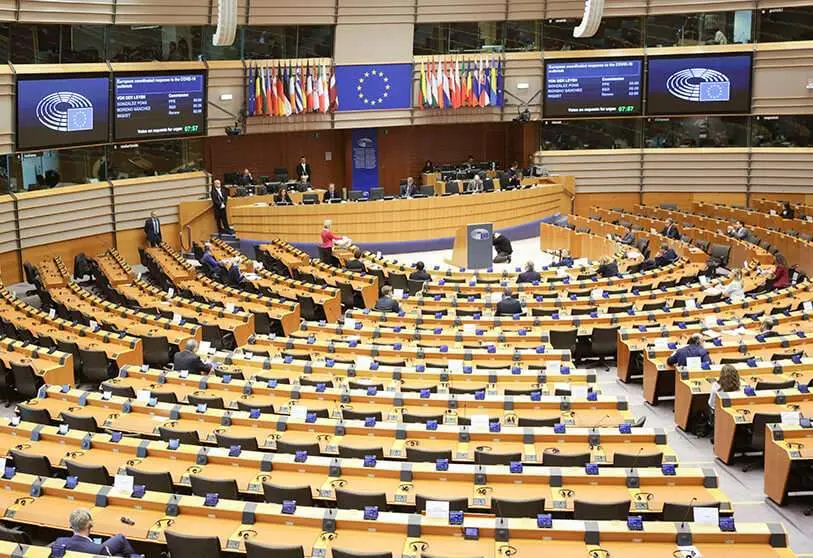Five European ministers duel in the sun amid the crisis bailout

Mutualising debt. This is the intention of the countries of southern Europe, which has led to bankruptcy within the European Union to such an extent that, after two days of the uneventful meeting of the Eurogroup, some analyses are beginning to assess the possibility that the coronavirus crisis will end up taking away the single currency or even the project of a United Europe. Time will tell whether the continental society that is born after this health disaster leaves the EU behind or not, but for the moment the discussions are fierce enough to think that a break-up is possible.
The debate is focused on the tool to be used to support those members who will find it difficult to cope with the economic depression resulting from the closure of their productive activities. There is black or white. Those who want the ransom to be demanded and those who refuse that stigmatization, which would leave their future touched for many years. The latter advocate collectivisation of the costs of the crisis, aid to companies and governments that see their GDP reduced and their deficit increased to a level that casts doubt on their membership of the European club.
The rescue fund, known as the European Stability Mechanism (ESM), is in all discussions. We have popularly known it as the ‘men in black’, the staff sent by Brussels to intervene in a failing economy and impose the terrible decisions needed to get back on track. Before they start talking, they usually decree a drastic reduction in the pensions and salaries of public employees. And then, with more time, they sit down to talk about the rest of the measures. Germany and the Netherlands point out to economies in difficulty to raise this issue. The conditionality to access this bailout is the keystone of this discussion. Germany is willing to lower the agreed demands for the MEDE, but the Netherlands refuses, claiming what northern Europe has always claimed about the southern PIGs: that the party resulting from their wrong decisions cannot be paid for by those who have done things right, as if nothing had happened. As a solution, The Hague proposes a system of donations through money transfers to the countries most in need after the virus. The president of the Eurogroup, the Portuguese Mário Centeno, has slipped in the proposal for funding of 2% of the GDP of the countries in greatest difficulty, without this being called MEDE, so that the leonine conditions it entails are not compulsory.
The Eurobonds are the solution for Spain and Italy, with France taking this position. Sharing the cost of the coronavirus with the common debt issue of the twenty-seven and also sharing the risk and financing. Giuseppe Conte's Government refuses to let the bailout be the usual stigma for his country, as happened with Greece, Ireland or Portugal in the past. And Spain, in order to defend the mutualisation of the debt, appeals to the responsibility of the European project and to its original idea of demanding that all countries bear the consequences of their own unpredictability, which has made it the country with the most deaths per million inhabitants and has forced the economy to be paralysed in a traumatic way with consequences that can last a decade and cause the impoverishment of an entire generation. With extreme left-wing groups in its midst, neither Spain nor Italy wants to hear about a rescue that they have been turning into the source of all the evils of the universe for years.
A common recovery programme would be the “third way”, with funds provided by the MEDE, the European Investment Bank and the ECB, which is the most novel French proposal so far. But how will this liquidity reach businesses, the European self-employed and families? The unbearable bureaucracy of the European institutions threatens to slow down this whole process until it has sufficiently irrigated the basic economy. The money contributed by society through taxes would be returned to society through aid, which is necessary to avoid the total ruin of the most damaged economies.
The battle has been fought this Easter in the European institutions. The protagonists of the duel in the sun have been the five finance ministers whose names are already familiar to public opinion on the continent: Bruno Le Maire, Nadia Calviño, Roberto Gualtieri, Wopke Hoekstra and Olaf Scholz. Behind them are the heads of government who will have to endorse their decisions at European Councils, although consensus decisions are conspicuous by their absence for the time being.

